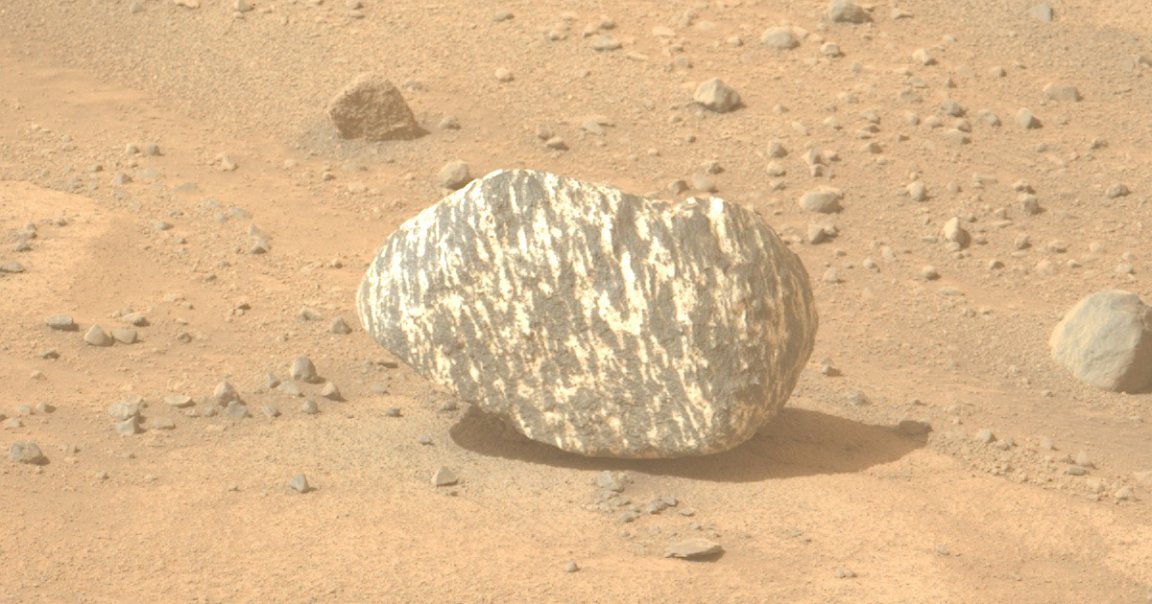
Rock the Casbah
NASA’s Mars Perseverance rover has encountered something unlike anything else discovered on the Red Planet: a zebra-striped rock that sticks out like a sore thumb in the midst of the planet’s dusty, notoriously red landscape.
The rover found the unusual stone, measuring about 7.8 inches in width, last week, according to NASA in a statement about the disovery, while the craft was exploring the Jezero Crater, located north of the planet’s equator and which is believed to have been the site of an ancient lake and river delta.
“The science team thinks that this rock has a texture unlike any seen in Jezero Crater before, and perhaps all of Mars,” reads the statement from the space agency. “Our knowledge of its chemical composition is limited, but early interpretations are that igneous and/or metamorphic processes could have created its stripes.”
Researchers are now calling the rock “Freya Castle” — a nod to a craggy peak in the Grand Canyon — and are surmising that it came from somewhere at a higher elevation, according to NASA. Basically, this loose stone rolled there and gathered no moss.
Stone Alone
Freya Castle isn’t the only weird rock that Perseverance has found this year at the crater. Earlier this summer, the probe chanced upon an arrow-shaped slab with tiny “leopard spots” that could hold tantalizing evidence of microbes from billions of years ago, back when scientists believe there might have been water on the surface of Mars.
Perseverance took a core sample of that rock, now called “Cheyava Falls,” for further analysis. The rover has also found two other boulders, nicknamed “Atoko Point” and “Bunsen Peak,“ both of which may have hold more clues on Mars’ early history.
These are all incredible finds for Perseverance, which landed on Mars back in 2021 and whose current mission is to find any evidence of alien microbes that could have flourished on Mars when it was wetter and warmer.
NASA is hoping that the samples the rover has collected will be sent back to Earth for further analysis as part of its troubled Mars Sample Return mission, in hopes that the data will tell us more about the Martian climate billions of years ago, and what happened to make the planet cold and desolate.
Until then, Perseverance is leaving no stone unturned.
More on Mars: Mars Appears to Be Missing a Moon, Astronomer Finds